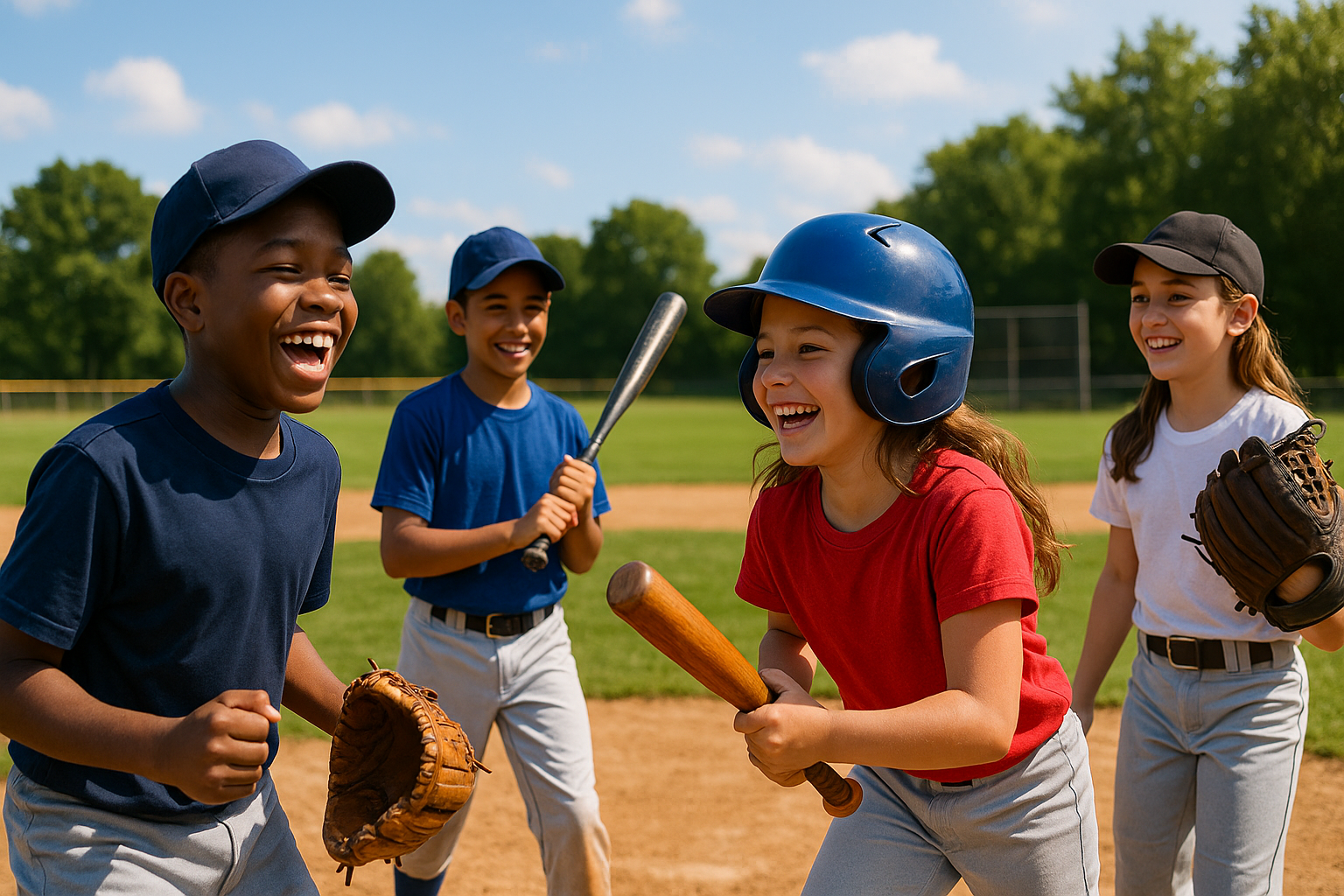As Braves fans everywhere gear up for another shot at the MLB Championship (2025, here we come!), it’s the perfect time to talk about more than just stats and home runs. Let’s talk about how playing baseball can be a game-changer for your child’s mental health.
Whether your kid dreams of being the next Ronald Acuña Jr. or just wants to make some friends and have fun, stepping onto the diamond can do wonders for their emotional well-being.
1. Teamwork Teaches Empathy & Social Skills
Baseball is the ultimate team sport. Every play — from a bunt to a double play — relies on cooperation and communication.
Kids learn to support teammates, resolve conflicts, and celebrate others’ successes.
They also practice taking turns, showing patience, and adapting to different personalities — critical skills for both the dugout and the classroom.
2. Improved Focus and Mental Discipline
Baseball is a mental game. Players need to concentrate on pitch counts, timing, and strategy — all under pressure.
This builds focus, resilience, and executive functioning skills.
It also teaches kids how to manage stress, bounce back after mistakes, and stay mentally tough — whether they’re in the batter’s box or navigating school challenges.
3. Physical Activity = Better Mood
Exercise is one of the most effective natural ways to improve mental health — and baseball gets kids moving!
Regular physical activity helps regulate emotions, reduce anxiety, and boost mood through the release of endorphins.
Time spent outdoors and away from screens adds an extra mental health bonus.
4. Belonging & Confidence
When a kid puts on their team jersey, they become part of something bigger than themselves — and that sense of belonging matters.
Kids on teams often report higher self-esteem, especially when they feel valued for their role (not just their stats).
Achieving small goals — like making contact with the ball or catching a fly — gives kids real, measurable confidence.
5. Learning to Fail — and Try Again
Let’s face it: baseball is a sport where even the best players fail a lot. (A .300 batting average means you failed 70% of the time!)
Kids who play baseball learn that failure isn’t the end — it’s part of the process.
They develop grit, growth mindset, and the courage to keep swinging — on and off the field.
In The Gift of Failure (2015), Jessica Lahey argues that letting kids experience failure is essential for building autonomy, resilience, and intrinsic motivation. Overparenting may protect kids from short-term discomfort, but it can undermine their long-term growth and confidence. Lahey urges parents to support children without rescuing them, allowing real learning to happen through struggle.
Reference:
Lahey, J. (2015). The Gift of Failure: How the Best Parents Learn to Let Go So Their Children Can Succeed. Harper.
Final Thoughts
As Braves fans, we know the thrill of a walk-off homer or a perfect double play. But what happens in youth baseball is just as powerful. When your child steps up to the plate, they’re not just playing a sport — they’re developing lifelong tools for emotional resilience, confidence, and well-being.
So this season, whether they’re playing t-ball, Little League, or just tossing a ball in the yard — remember that every swing counts.
